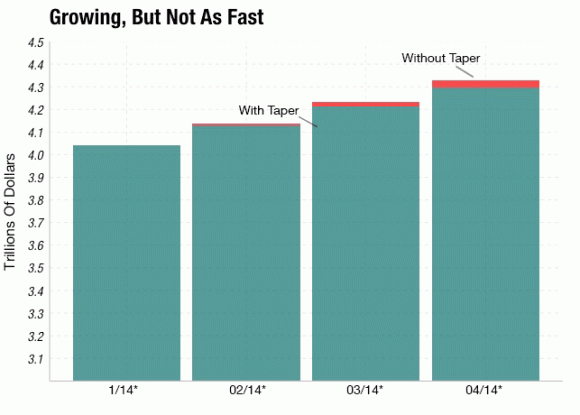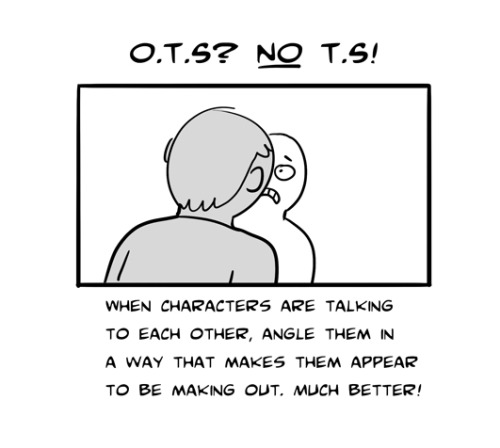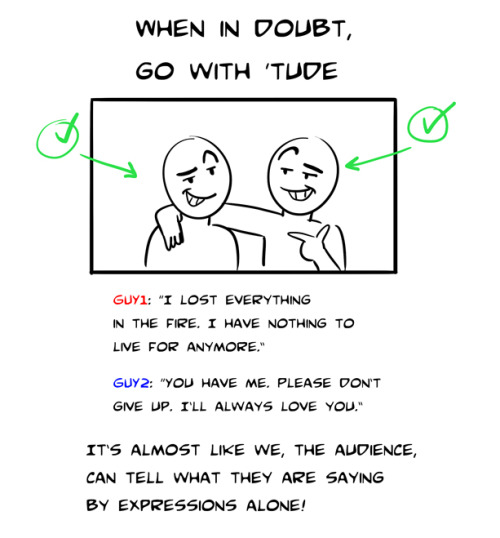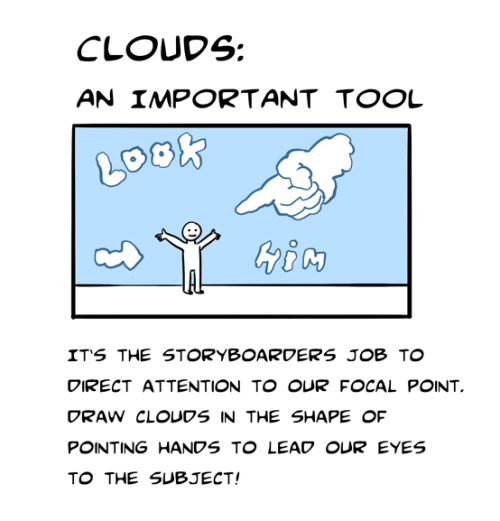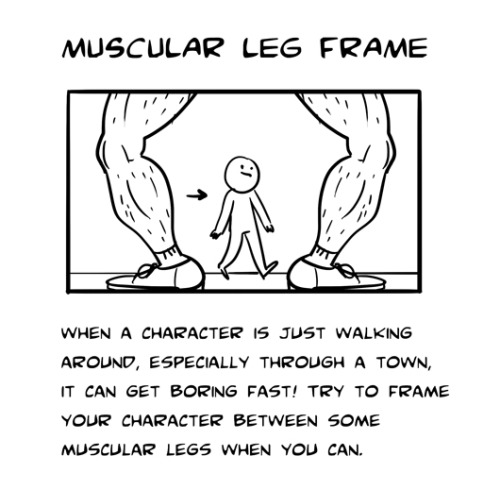Welcome to Wonkbook, Ezra Klein and Evan Soltas's morning policy news primer. To subscribe by e-mail, click here. Send comments, criticism, or ideas to Wonkbook at Gmail dot com. To read more by Ezra and his team, go to Wonkblog.

The Fed's tiny taper is getting all the attention. But Ben Bernanke didn't just pull back his monthly bond buy yesterday. He also extended the Fed's primary stimulus policy of incredibly low interest rates.
Previously, the Fed had promised to hold to its low rates until unemployment hit 6.5 percent. But given the sharp drop in the number of people participating in the labor force, 6.5 percent unemployment may not mean what once hoped it would mean. So on Wednesday, the Federal Reserve announced that they will likely continue keeping rates this low until "well past the time that the unemployment rate declines below 6-1/2 percent."
"That's the right call," says Matt Yglesias, "and it means Ben Bernanke will be wrapping up his term as Fed chair with a move in the right direction."
But Congress is wrapping up Ben Bernanke's term as Fed chair with a move in the wrong direction. The Fed's lower rates are supposed to allow Congress to borrow more money right now to help the unemployed. Instead, Congress is letting unemployment benefits lapse at the end of this month. Ben Bernanke can lead a horse to water. But he can't make them stop screwing the unemployed.
This has been a central challenge of Bernanke's term. He can make it possible for Congress to borrow at almost nothing to get the economy moving again. But he can't make them do it. Since basically 2010 Federal Reserve policy has been getting more stimulative even as Congress has become a larger and larger drag on the economy.
In May, Bernanke warned that "the expiration of the payroll tax cut, the enactment of tax increases, the effects of the budget caps on discretionary spending, the onset of sequestration, and the declines in defense spending for overseas military operations are expected, collectively, to exert a substantial drag on the economy this year" and that “monetary policy does not have the capacity to fully offset an economic headwind of this magnitude.”
There's an alternate history of the last three years in which Bernanke held rates low and Congress used the opportunity to rebuild America's infrastructure, passed a huge tax cut for businesses that hire new workers, helped state and local government reinvest after the vicious cuts forced by the recession, and wiped out the payroll tax until further notice. That's a world where millions more Americans have jobs today. And it's a world Bernanke did everything he could to help Congress create.
Wonkbook's Number of the Day: $10 billion. That's the amount by which the Federal Open Market Committee, which sets U.S. monetary policy, will reduce its monthly bond purchases in January, which had run at $85 billion in 2013.
Wonkbook's Graphs of the Day: The paths of the uninsured, and where the uninsured live.
Wonkbook's Top 5 Stories: (1) Ben Bernanke's final play; (2) budget deal passes; (3) how the NSA needs reform; (4) Obamacare is like O'Hare; and (5) estimating the shale gas boom.
1. Top story: Exit Bernanke and bond-buying. Enter Yellen and the taper.
Fed to scale back stimulus by $10 billion. "Next month, the Fed will scale back its support from $85 billion a month to $75 billion — cutting $5 billion each from mortgage and Treasury bond purchases. Fed Chairman Ben S. Bernanke said the program will probably continue to shrink in “similar, moderate steps” at future meetings and end altogether late next year. But he cautioned that the pace is not predetermined; instead, it will depend on the progress of the recovery. Officials could skip “a meeting or two” if they are disappointed in the economic data, he said...Officials also stressed that the decision does not affect the central bank’s commitment to keeping short-term interest rates near zero. The Fed on Wednesday said rates will probably remain low well after the unemployment rate reaches 6.5 percent — stronger language than it has used in the past. The central bank also said it is unlikely to raise rates while inflation is below its target of 2 percent." Ylan Q. Mui in The Washington Post.
Primary source: The FOMC statement.
Liveblogs: The Washington Post and The New York Times did it live.
Explainer: 5 key takeaways from the Fed's monetary policy statement. Jon Hilsenrath in The Wall Street Journal.
Bernanke hands off the challenge of tapering to Yellen. "The Federal Reserve's decision Wednesday to begin reducing its signature bond-buying program removes one big item on Janet Yellen's to-do list when she likely takes the reins in February, but she is still inheriting a job with numerous challenges...Now that the Fed has begun to wind down its bond-buying program, it will fall to Ms. Yellen to decide if economic conditions warrant continuing to pare the purchases or not. She will also have to decide whether and how to tweak the Fed's promises to keep interest rates near zero for a long time if the economy fails to recover as the Fed now forecasts. And she will also have to decide how to respond if inflation remains stubbornly below the Fed's 2% target." Victoria McGrane in The Wall Street Journal.
@BCAppelbaum: Bernanke: "We've seen meaningful cumulative progress in the labor market."
The Fed is cutting back on its money printing — and Wall Street is thrilled. "Why are markets so buoyant as the Fed take its first baby step toward tighter monetary policy? The most clear-cut explanation is this: The $10 billion taper was accompanied by steps to reassure markets that Uncle Ben (or Aunt Janet) are going to keep flooding the economy with cash, taper notwithstanding. In its policy statement, the Fed said that it will continue buying bonds and will "employ other policy tools as appropriate" until the job market has "improved substantially." That was accompanied by a wee hint of a step in a dovish direction: In projections released in September, three of the Fed's 17 policymakers thought that interest rate hikes would be warranted in 2014. That number fell to two in December, and the number who thought rate hikes would wait until 2016 rose from two to three." Neil Irwin in The Washington Post.
But the change to policy is supposed to be neither a tightening nor a loosening of policy. "Bernanke indicated during today’s presser that today’s changes — the most important being the start of tapering and the language strengthening the forward guidance — were meant to neutralise each other in terms of their impact on the overall accomodativeness of monetary policy." Cardiff Garcia in The Financial Times.
Might a metaphor help? "It was a bit like a mother warning a child that she would gradually reduce the number of bags of M&Ms he could eat every week, but, at the same time, reassuring the boy that his supply of Snickers bars would be uninterrupted, and might even be stepped up if he started to lose weight. Wall Street’s reaction indicated that it was perfectly happy with its revised diet, which will still be rich in sugar." John Cassidy in The New Yorker.
@MattZeitlin: at least three fed reporters have bernanke's basic hair beard combo, but so far none have the yellen 'do
The Fed's taper may rough up these five countries. "The “fragile five”, economies identified by Morgan Stanley as particularly vulnerable due in part to large current account deficits, are once more in focus. The central banks of Brazil, India, Indonesia, South Africa and Turkey have been busy hiking rates to counter plunging currencies. But governments have yet to tackle the difficult domestic reforms, including tax and labour, to free up their economies and attract the long-term investment they need not least as all five face elections in 2014." The Financial Times.
In another sort of monetary policy, Britain is moving towards plastic money. "As a new technology, plastic bank notes, becomes more popular around the world, people will have to get used to money that is slipperier but less grimy and harder to fold into origami cranes but more likely to survive washing machines...Others, although not the United States, are expected to follow suit. The reason is simple enough: Plastic — or polymer, as it is called — holds up better than paper. It is also a lot harder to counterfeit." Ian Austen and Nathaniel Popper in The New York Times.
@Goldfarb: With his abundant critique of fiscal policy as too tight, one wonders whether Bernanke is still a Republican.
Housing starts hit a 6-year high, and that's the kind of news that justifies a taper. "The Commerce Department said on Wednesday that housing starts jumped 22.7 percent last month from October, the biggest increase since January 1990, to a seasonally adjusted annual rate of 1.09 million units. That was the highest level since February 2008...Economists, who had expected housing starts to come in at a rate of 950,000 units in November, raised their fourth-quarter gross domestic product estimates by as much as two-tenths of a percentage point on Wednesday to as high as a 2.3 percent annual rate." Reuters.
Quotes: 7 New Yorkers who are about to lose their unemployment insurance talk about what it's like. Sulome Anderson in New York Magazine.
IRWIN: This is how history should judge Ben Bernanke. "At a time when there was a sense of economic despair across the country, when official Washington was immersed in a kind of fatalism, unwilling to take on the hard task of trying to coax growth out of a stagnant economy, he was different. He didn’t have the perfect tools for the job, but he searched his academic knowledge of how economies work, and used what he did have to try to put America’s jobless back to work. Bernanke’s chairmanship has been a fight for the idea that good policy can make people’s lives better, and he has exhibited the courage to take risks to make it so." Neil Irwin in The Washington Post.
@ObsoleteDogma: If this presser doesn't end with Bernanke taking a selfie and Yellen photobombing him, I'll be disappointed.
WESSEL: Bernanke made the Fed more open. "Twenty years ago, the Fed didn't even disclose when its policy committee had decided to move interest rates, let alone explain why. On Wednesday, the central bank issued a 694-word statement as well as economic forecasts stretching to 2016. Then Mr. Bernanke spent 67 minutes fielding questions from reporters on live television on everything from the reasons inflation is stubbornly below the Fed's target." David Wessel in The Wall Street Journal.
PETHOKOUKIS: Fed remains in growth mode, despite taper. "If stock market’s initial mega-bullish reaction is any gauge, then the Bernanke Fed’s decision to, effectively, refrain from reducing monetary stimulus is good for US economic growth. And it probably is. Although the Federal Open Market Committee did announce it was reducing its monthly bond buys to $75 billion from $85 billion, at the same time policymakers also strengthened their commitment to keeping interest rates low for a long time." James Pethokoukis for the American Enterprise Institute.
Music recommendations interlude: The best music of 2013, according to: NPR, The Guardian, Pitchfork and Spin.
Top opinion
KLEIN: Ryan-Murray budget deal doesn’t show the two parties can compromise, it shows they can’t. "Ex-Sen. Judd Gregg made an argument that's become common in Washington. The deal, he said, showed there was a path forward in which the two parties could compromise and work together. It was a place to start, not a place to end. I disagree completely...Ryan and Murray struck the best deal they could without compromising on anything either side really cared about. But that just goes to show that doing anything significant requires compromise. This deal doesn't show that Congress is finally working again. It shows that the two parties have accepted that it's broken." Ezra Klein in The Washington Post.
SOLTAS: Can MIT cure long-term unemployment? "If there is a way out of America’s crisis of long-term unemployment, it's possible nobody has a better chance of finding it than a new team of five researchers based at the Massachusetts Institute of Technology. Their project, the Institute for Career Transitions, will take a data-driven approach to figuring out the best way to help the long-term unemployed land jobs. The research is the first of its kind; with 4.1 million Americans who have unable to find work for more than six months, it couldn’t be more important...[T]he team has designed what a scientist would call a randomized controlled trial to test whether support in the job search can help the long-term unemployed find work, and if so, what kind of support has the greatest impact." Evan Soltas in Bloomberg.
BERNSTEIN: Budget deal's impact is only a blip. "It’s important, however, to use this little deal to make a broader point: policy makers have done serious long-term damage to an important part of the budget that has few defenders and many defunders: NDD, or nondefense discretionary spending. The new budget agreement has almost an imperceptible impact on that development." Jared Bernstein in The New York Times.
CARROLL: Conservatives see the light on deductibles. "The revelation that many plans in the Patient Protection and Affordable Care Act’s health insurance exchanges have high deductibles has put many of the law’s conservative opponents into a corner: Once in favor of high deductibles, these critics of Obamacare are suddenly worried about the risk to consumers. The data show why their new position makes more sense." Aaron Carroll in Bloomberg.
Opinion poll: Is big government, big labor, or big business the greatest threat? Record number in U.S. (72 percent) answer with "big government." Jeffrey M. Jones in Pew Research.
SUROWEICKI: Deadbeat governments. "[T]hough plenty of states and cities have managed to maintain healthy pension funds, in many places pension costs are eating up huge chunks of the budget. New Jersey’s and California’s pension funds are both in deep holes. San Diego now spends more than twenty per cent of its operating budget on pensions; San Jose spends a quarter of its budget on them. Illinois needs to come up with nearly a hundred billion dollars just to pay off obligations it is already committed to." James Suroweicki in The New Yorker.
ORSZAG: Government jobs shouldn't be soul-killing. "Federal employee satisfaction and commitment are at their lowest point since the survey began in 2003. Published by the nonpartisan Partnership for Public Service and Deloitte Consulting, the survey covers 97 percent of the 2.1 million U.S. federal workers...Job satisfaction has fallen for three years in a row. And it’s easy to understand why: Public servants have been demoralized by years of partisan bickering in Congress and by the furloughs they have had to take as a result." Peter Orszag in Bloomberg.
WILLIAMSON: Inequality does not matter. "Incomes among the bottom half of earners are not stagnating because of increasing inequality; inequality is increasing because incomes among the bottom half of earners is stagnating...High incomes at the top do not cause low incomes at the bottom, or vice versa. To assign economic agency to the abstraction that is inequality assumes the opposite." Kevin D. Williamson in National Review Online.
DIONNE: The Republicans' fight has just begun. "What makes the tea party rebellion peculiar is that its champions have lifted strategy and tactics to the level of principle...The showdown involving the two conservative power centers is not the only dispute that matters. There are crisscrossing divisions between foreign policy hawks and non-interventionists; between those who care passionately about social issues such as abortion and gay marriage and those who would play them down; between purist libertarians and pro-business pragmatists; and between supporters and opponents of a more open policy on immigration." E.J. Dionne in The Washington Post.
Engineering interlude: A train that never stops for passengers.
2. Senate passes Ryan-Murray budget deal
Ryan-Murray passes Senate in 64-36 vote. "Congress declared a holiday truce in the budget wars Wednesday, sending President Obama a blueprint for funding the government through 2015...[L]eaders of the congressional spending committees immediately began working on 2014 appropriations — the first in two years — to distribute about $45 billion in extra cash to federal agencies...Afterward, senators voted overwhelmingly to end debate on a defense bill that sets Pentagon policy and military pay levels. A final vote to approve the National Defense Authorization Act was scheduled for Thursday, with hopes rising that the chamber also would approve several pending nominations and head home Friday." Lori Montgomery in The Washington Post.
Nine Republicans voted in favor. "The bill drew support from a lukewarm band of backers, as members of both parties complained about its limited scope. Republicans wanted the legislation to do more to curb spending; Democrats were disappointed it didn't renew expanded unemployment benefits that are to expire before the year's end. Nine Republicans voted with all 55 members of the Democratic caucus for the bill: GOP Sens. John Hoeven of North Dakota, Susan Collins of Maine, Orrin Hatch of Utah, John McCain of Arizona, Johnny Isakson of Georgia, Rob Portman of Ohio, Ron Johnson of Wisconsin, Saxby Chambliss of Georgia and Lisa Murkowski of Alaska. Three other Republicans—Sens. Lamar Alexander of Tennessee, Roy Blunt of Missouri and Jeff Flake of Arizona—voted Tuesday on a procedural motion to cut off a Republican filibuster, but voted against the bill Wednesday." Janet Hook in The Wall Street Journal.
How Patty Murray sold Democrats on the budget deal. "Wonkblog obtained the document Murray has been circulating among Senate Democrats, and it's an interesting read. In short, the case she makes is that Democrats got a bit and gave up very little. In particular, she argues that Democrats preserved their fundamental negotiating positions: no changes to entitlements absent tax increases, no changes to sequestration without revenues, no restoration of defense spending without unwinding an equal restoration of domestic spending." Ezra Klein in The Washington Post.
Senate Democrats to make eleventh-hour push for tax extenders. "Majority Leader Harry Reid (D-Nev.) is expected to ask the Senate to continue 55 tax incentives for another year by unanimous consent, the aide said. That request was expected as soon as Wednesday afternoon, though the timing is now in flux. Republicans would object to that request, a GOP aide said." Bernie Becker in The Hill.
Ooh look Ma interlude: The Washington Post just launched a news explorer, "Topicly," which pulls together the news by topic.
3. What the NSA reform panel recommends
Panel urges new curbs on surveillance by U.S. "A panel appointed by President Obama to review the government’s surveillance activities has recommended significant new limits on the nation’s intelligence apparatus that include ending the National Security Agency’s collection of virtually all Americans’ phone records. It urged that phone companies or a private third party maintain the data instead, with access granted only by a court order. The President’s Review Group on Intelligence and Communications Technologies also recommended in a wide-ranging report issued Wednesday that decisions to spy on foreign leaders be subjected to greater scrutiny, including weighing the diplomatic and economic fallout if operations are revealed. Allied foreign leaders or those with whom the United States shares a cooperative relationship should be accorded “a high degree of respect and deference,” it said." Ellen Nakashima and Ashkan Soltani in The Washington Post.
Primary source: The NSA review board's report. The Washington Post.
Explainer: Who’s on the panel reviewing the NSA’s actions? Terri Rupar in The Washington Post.
The TLDR version of what the NSA recommended. "Some of the recommendations include specific steps to be taken or suggest changes to structures and procedures—that there be a public-interest advocate to “represent privacy and civil liberties interests before the Foreign Intelligence Surveillance Court”; that phone records be held by phone companies and not the government; that tech companies not leave vulnerabilities in their products that allow the N.S.A. slip in—but most of all it argues for a change in thinking. The thirty-page executive summary might be further condensed to a few sentences: Don’t do things just because you can. Tell people what the rules are. Remember that “security” doesn’t just mean chasing terrorists—it “refers to a quite different and equally fundamental value,” spelled out in the Fourth Amendment: “The right of people to be secure in their persons, houses, papers, and effects, against unreasonable searches and seizures.” Stop shutting down debate by muttering about a “balance” that needs to be struck between security and freedom—they are not on opposite sides of the scale. Start thinking about privacy." Amy Davidson in The New Yorker.
Another report is due in late January. "A group formed to protect Americans’ civil liberties said Wednesday it is releasing its investigation into the National Security Agency’s vast data-collection program in late January or early February, marking yet another set of recommendations for President Barack Obama to consider in revamping U.S. intelligence gathering. The Privacy and Civil Liberties Board, a government agency formed in the wake of the 9/11 Commission, said after it releases its initial investigation into the bulk data-collection program it will issue a separate report on the government’s procedures for spying on the online communications of groups located outside the U.S." Jared A. Favole in The Wall Street Journal.
How the NSA just cost Boeing a whole lot of dough. "Brazil has chosen Sweden’s Saab to supply its next generation fighter jet, snubbing France and the US and handing the small Scandinavian defence company one of the emerging market’s biggest defence deals. Analysts said the contract may be the biggest casualty yet for the US in a bitter dispute with Bras lia over revelations from the former National Security Agency contractor Edward Snowden of extensive spying by Washington in Brazil, including on President Dilma Rousseff and her staff...After nearly 20 years of stops and starts, the award of the $4.5bn contract to Sweden is a bitter loss for Boeing of the US and Dassault of France, which until recently were seen as the more likely winners." Carola Hoyos and Joe Leahy in The Financial Times.
GIFs interlude: Mitt Romney ironing a suit while wearing it (why is this viral?).
4. Obamacare is like O'Hare: Lots of delays, but you get there eventually.
Health insurers extend deadline for first premiums. "Insurance companies, worried about potential chaos next month as people begin seeking coverage under the federal health care law without completing the necessary paperwork, have agreed to give consumers an extra 10 days to pay their first-month premiums, according to a statement from the companies’ trade group on Wednesday...A bigger deadline looms on March 31, the last day for most people to obtain coverage for all of 2014 through the federal and state exchanges." Reed Abelson in The New York Times.
Primary source: Here's the statement from the insurers. Sarah Kliff in The Washington Post.
Graphs: The paths of the uninsured. Where the uninsured live. Josh Keller in The New York Times; Matthew Bloch, Matthew Ericson and Tom Giratikanon in The New York Times.
Minnesota shows the door to its insurance-exchange manager. "The head of Minnesota's health insurance marketplace resigned Tuesday after facing criticism over the troubled rollout and a questionably timed vacation in Costa Rica. April Todd-Malmlov submitted her resignation during an emergency closed session of the government board of MNsure, Minnesota's version of the insurance exchange that's tied to the federal health care overhaul. She had been under increasing pressure over insurance sign-up problems and failed to get a vote of confidence from Democratic Gov. Mark Dayton last week...Assistant Commissioner for Health Care Scott Leitz will serve as the interim executive director for MNsure until the agency can find a permanent replacement for Todd-Malmlov." Elizabeth Stawicki and Catherine Richert in Kaiser Health News.
Turmoil continues in state health exchanges. "At least four of the 14—Hawaii, Maryland, Minnesota and Oregon—have had serious technical problems, and all four have now replaced directors less than three months after opening their exchanges...Officials in some of the 14 states running their own exchanges said they were seeing a recent surge of interest...New York state officials said they have seen a 34% increase in enrollment this week compared with last week. Kentucky's health exchange has brought on 50 extra people to handle consumer calls." Amy Schatz in The Wall Street Journal.
Demand for insurance is still rising. "If November had an Obamacare surge, consider this the December deluge. California averaged 15,000 daily enrollments early last week, about double the sign-ups the state had in early December. New York is now seeing about 4,500 residents choosing plans each day and, in Connecticut, the number is hovering around 1,400...The rush comes before a Dec. 23 deadline to purchase coverage that would begin on Jan. 1. While open enrollment does run through the end of March, the Dec. 23 deadline could be especially important to those who currently purchase coverage and don't want to fall into an insurance gap -- and those who have anticipated the health-care law's insurance expansion. While states did expect a last-minute rush, some report being taken a bit off guard by how quickly it happened." Sarah Kliff in The Washington Post.
Poll shows skepticism of health reform coming from the uninsured. "Fifty-three percent of the uninsured disapprove of the law, the poll found, compared with 51 percent of those who have health coverage. A third of the uninsured say the law will help them personally, but about the same number think it will hurt them, with cost a leading concern." Abby Goodnough and Alison Kopicki in The New York Times.
Urban interlude: Traffic organized by color.
5. The shale gas boom
Here’s how the shale gas boom is saving Americans money. "New research from Boston Consulting Group (BCG) suggests that shale-gas benefits might be much, much bigger than we think. The study estimates that the natural gas boom is now saving the average U.S. household $425 to $725 a year. That's enough to blunt most of the impact from, say, the expiration of the payroll tax cut back this past January." Brad Plumer in The Washington Post.
Ukraine is a key opportunity for natural-gas diplomacy. "Whatever the results of the current demonstrations, breaking free of Russian dominance over the long term may prove a challenge for Ukraine. The country remains dependent on Russian natural gas as an energy source, and the Russian government has shown itself quite willing to use this energy leverage as a political weapon. In fact, Russia recently announced a deal to bolster the current pro-Russian Ukrainian government by providing loans and cheaper natural gas...[B]y undercutting Russia's natural gas based market power, more gas exports would further America's national security interests as well." Josiah Neeley in The Week.
Reading material interlude: The best sentences Wonkblog read today.
Wonkblog Roundup
Here’s how the shale gas boom is saving Americans money. Brad Plumer.
In New York, Uber’s price surge isn’t a problem. Other cities might be different. Lydia DePillis.
You have never actually used a Styrofoam cup, plate or takeout box. Lydia DePillis.
How Patty Murray sold Democrats on the budget deal. Ezra Klein.
The Fed is cutting back on its money printing — and Wall Street is thrilled. Neil Irwin.
Ryan-Murray budget deal doesn’t show the two parties can compromise, it shows they can’t. Ezra Klein.
California is averaging 15,000 Obamacare enrollments each day. Sarah Kliff.
Insurers are giving Obamacare shoppers more time to pay. Sarah Kliff.
This is how history should judge Ben Bernanke. Neil Irwin.
Et Cetera
Longread: How John McCain turned his clich s into meaning. Mark Leibovich in The New York Times.
Both Ryan and Rubio see their odds of a 2016 nomination slipping away. Paul Kane in The Washington Post.
Republican Pa. Gov. will support law to ban employer discrimination by sexual orientation. Jon Hurdle in The New York Times.
Got tips, additions, or comments? E-mail me.
Wonkbook is produced with help from Michelle Williams.














![PS4, Xbox One 'May Use 3 Times More Power' Than the Last Generation [Corrected]](http://img.gawkerassets.com/img/19a3s773pbc8kjpg/ku-xlarge.jpg)











